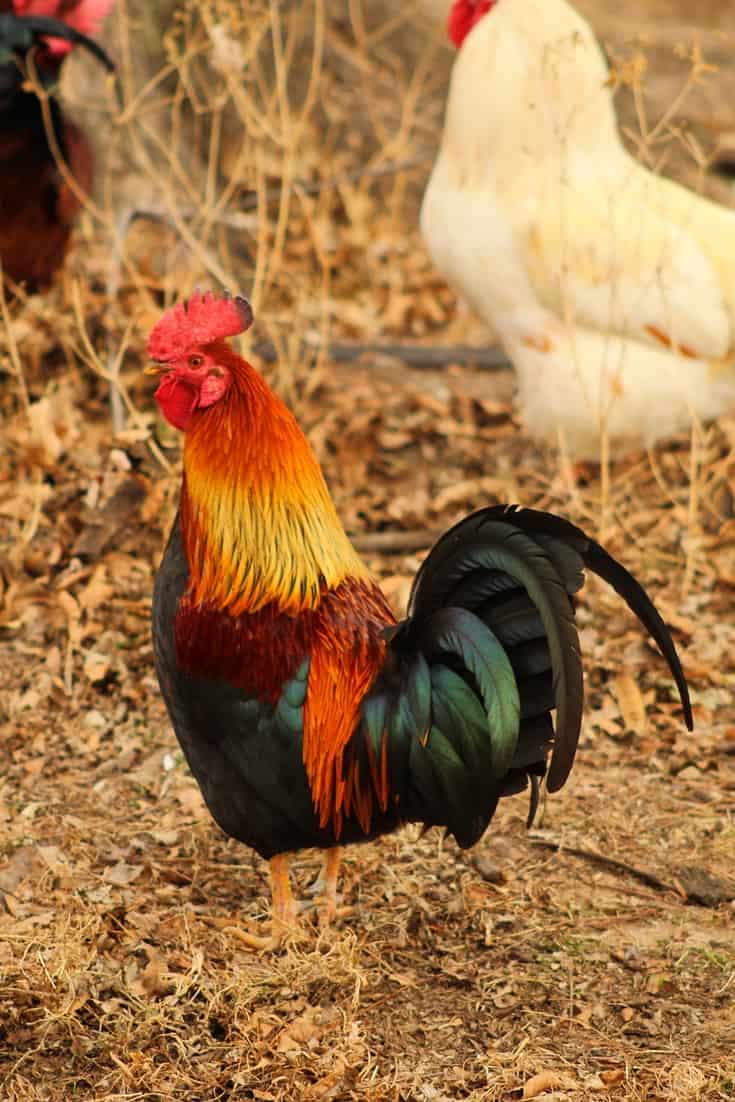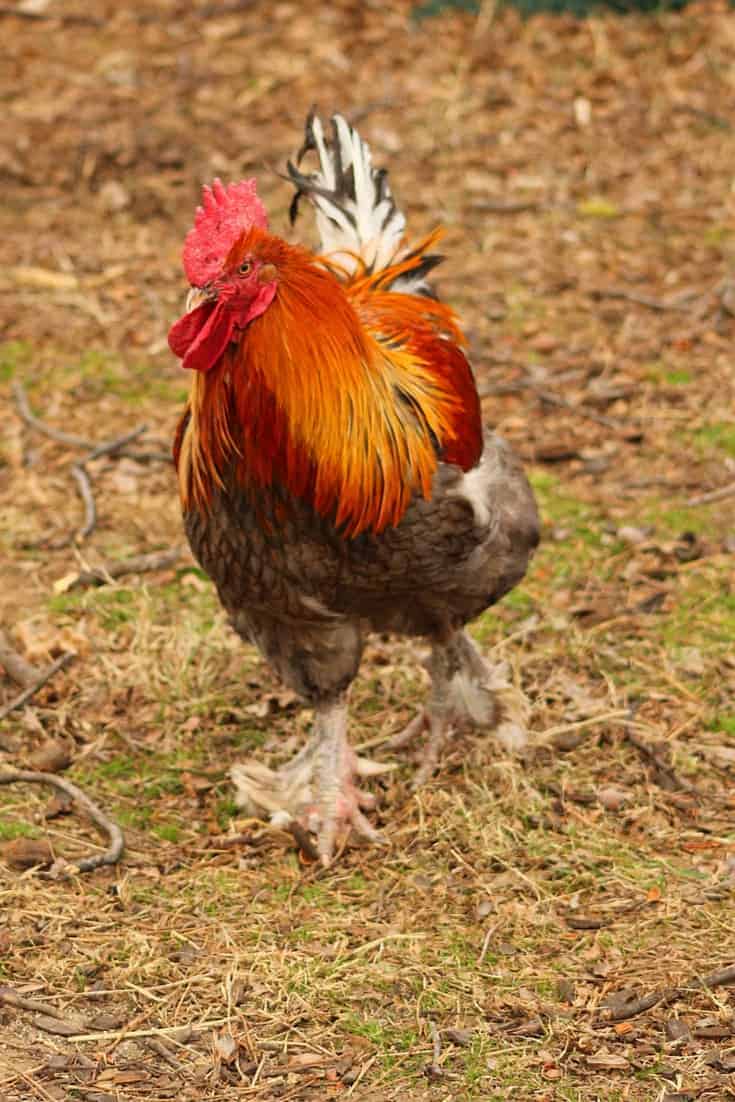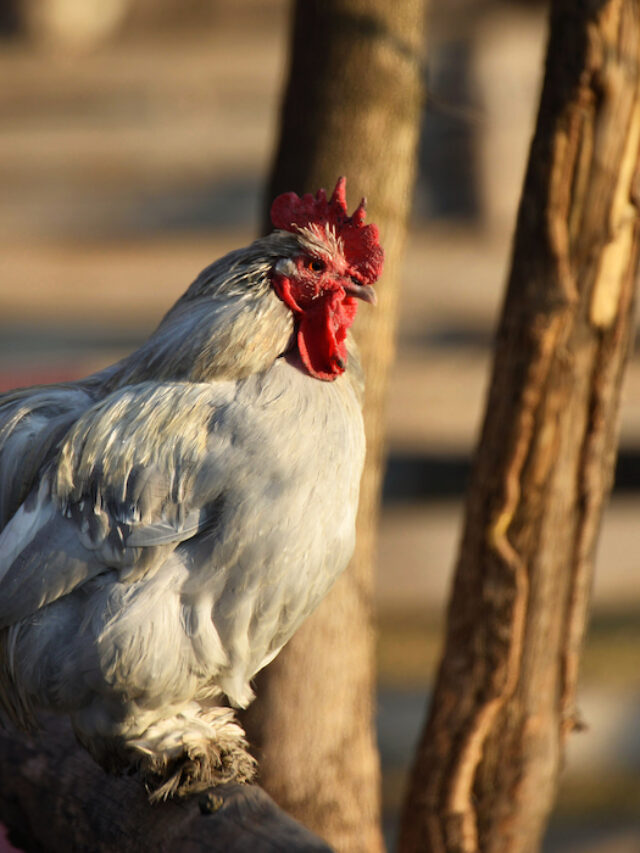Chickens are fascinating creatures, and one of the most common questions asked by aspiring poultry farmers or backyard chicken enthusiasts is whether chickens can lay eggs without a rooster. The short answer is yes, chickens can lay eggs without the presence of a rooster. However, understanding the nuances of egg production and reproduction in chickens is crucial for anyone interested in raising chickens or optimizing their flock's egg output.
Whether you're a beginner or an experienced poultry keeper, knowing the role of roosters in egg-laying and the differences between fertilized and unfertilized eggs can help you make informed decisions about your flock. This article will provide comprehensive insights into the topic, ensuring you have all the necessary information to succeed in raising chickens.
In this guide, we'll explore the biological processes behind egg-laying, the importance of roosters, and how you can maximize egg production without a rooster. By the end of this article, you'll have a clear understanding of what to expect from your hens and how to manage your flock effectively.
Read also:Discover The Magic Of Look Movie A Comprehensive Guide To The Films World
Table of Contents
- The Biological Process of Egg-Laying in Chickens
- The Role of a Rooster in Egg Production
- Understanding Fertilized vs. Unfertilized Eggs
- Benefits of Keeping Chickens Without a Rooster
- Factors Affecting Egg Production Without a Rooster
- Common Misconceptions About Egg-Laying Without a Rooster
- Choosing the Right Chicken Breeds for Egg-Laying
- Tips for Caring for Hens Without a Rooster
- Health Considerations for Egg-Laying Hens
- Conclusion and Final Thoughts
The Biological Process of Egg-Laying in Chickens
Understanding the biological process of egg-laying in chickens is essential to answering the question, "Can chickens lay eggs without a rooster?" The egg-laying process begins in the hen's ovary, where ova (egg yolks) develop. Each hen is born with a finite number of ova, and as she matures, these ova are released one at a time into the oviduct.
Stages of Egg Formation
Once the ovum is released, it travels through the oviduct, where different parts of the egg are formed:
- Yolk Formation: The yolk is the first part of the egg to develop and serves as the primary source of nutrition for a potential chick.
- Albumen Addition: The egg white, or albumen, is added around the yolk to provide additional nutrients and cushioning.
- Shell Membrane and Shell Formation: The shell membrane is added, followed by the hard calcium carbonate shell, which protects the developing egg.
This entire process takes approximately 25-26 hours, after which the egg is laid. Importantly, this process occurs regardless of whether a rooster is present.
The Role of a Rooster in Egg Production
While hens can lay eggs without a rooster, the role of a rooster is crucial for producing fertilized eggs. Roosters contribute sperm to the egg-laying process, enabling the possibility of chick development. Without a rooster, eggs will remain unfertilized and cannot hatch into chicks.
Do You Need a Rooster for Egg-Laying?
In most backyard chicken setups, a rooster is not necessary unless you intend to breed chickens. For those focused solely on egg production, hens can thrive and produce eggs efficiently without a rooster. However, if you're interested in expanding your flock through breeding, a rooster will be essential.
Understanding Fertilized vs. Unfertilized Eggs
One of the most important distinctions when discussing egg-laying without a rooster is the difference between fertilized and unfertilized eggs. Fertilized eggs result from the union of a hen's ovum and a rooster's sperm, while unfertilized eggs are laid naturally by hens without any interaction with a rooster.
Read also:Zone Bars Discontinued What You Need To Know And Alternatives To Consider
Key Differences Between Fertilized and Unfertilized Eggs
- Fertilized Eggs: Can develop into chicks if incubated under the right conditions.
- Unfertilized Eggs: Cannot hatch into chicks and are safe for human consumption.
It's worth noting that unfertilized eggs are identical in nutritional value to fertilized eggs, making them a popular choice for dietary consumption.
Benefits of Keeping Chickens Without a Rooster
Many backyard chicken enthusiasts choose to keep hens without a rooster for several practical reasons. Below are some of the key benefits:
1. Reduced Noise
Roosters are known for their loud crowing, which can be disruptive, especially in urban or suburban areas. By keeping only hens, you can avoid noise complaints from neighbors.
2. Simpler Management
Managing a flock without a rooster is often simpler, as roosters can exhibit aggressive behavior toward humans or other chickens. Hens, on the other hand, tend to be more docile and easier to handle.
3. Cost Efficiency
Maintaining a flock without a rooster can reduce costs associated with feeding and caring for an additional bird. Additionally, you won't need to worry about breeding or chick-rearing expenses unless you decide to introduce a rooster later.
Factors Affecting Egg Production Without a Rooster
While hens can lay eggs without a rooster, several factors influence their egg production rate. Understanding these factors can help you optimize your flock's output:
1. Age of the Hen
Young hens, or pullets, typically begin laying eggs at around 18-24 weeks of age. Egg production peaks during the first two years of a hen's life and gradually declines with age.
2. Diet and Nutrition
A balanced diet rich in protein and calcium is essential for optimal egg production. Ensure your hens have access to high-quality feed and fresh water at all times.
3. Lighting Conditions
Hens require approximately 14-16 hours of daylight to maintain consistent egg production. During shorter winter days, consider using artificial lighting to supplement natural sunlight.
Common Misconceptions About Egg-Laying Without a Rooster
There are several misconceptions surrounding egg-laying in chickens, especially regarding the role of roosters. Below, we address some of the most common myths:
Myth 1: Hens Cannot Lay Eggs Without a Rooster
As we've discussed, hens can and do lay eggs without a rooster. The presence of a rooster only affects whether the eggs are fertilized.
Myth 2: Unfertilized Eggs Are Less Nutritious
Unfertilized eggs are just as nutritious as fertilized eggs. Both types provide essential vitamins and minerals, making them a valuable addition to any diet.
Choosing the Right Chicken Breeds for Egg-Laying
When selecting hens for your flock, consider breeds known for their high egg production rates. Popular egg-laying breeds include:
1. White Leghorn
Renowned for their prolific egg-laying abilities, White Leghorns can produce up to 300 eggs per year.
2. Rhode Island Red
Known for their hardiness and adaptability, Rhode Island Reds are excellent layers of large brown eggs.
3. Plymouth Rock
This friendly breed is a dual-purpose bird, producing both eggs and meat while maintaining a calm temperament.
Tips for Caring for Hens Without a Rooster
Proper care is essential for ensuring your hens remain healthy and productive. Below are some tips for caring for your flock:
1. Provide Adequate Shelter
Ensure your hens have access to a clean, well-ventilated coop that protects them from predators and harsh weather conditions.
2. Maintain Hygiene
Regularly clean the coop and nesting boxes to prevent the buildup of bacteria and parasites.
3. Monitor Health
Keep an eye on your hens' health and seek veterinary care if you notice any signs of illness or distress.
Health Considerations for Egg-Laying Hens
While hens can lay eggs without a rooster, their health and well-being should always be a priority. Common health issues affecting egg-laying hens include:
1. Egg-Binding
Egg-binding occurs when a hen is unable to expel an egg, leading to discomfort and potential health risks. Providing a calcium-rich diet can help prevent this condition.
2. Molting
Molting is a natural process where hens shed old feathers and grow new ones. During this time, egg production may temporarily decline.
Conclusion and Final Thoughts
In conclusion, chickens can indeed lay eggs without a rooster, making it possible for backyard chicken enthusiasts to enjoy fresh eggs without the complications of breeding. By understanding the biological processes behind egg-laying and the factors affecting production, you can create an optimal environment for your hens to thrive.
We encourage you to share your experiences and tips in the comments section below. Additionally, feel free to explore other articles on our site for more information on raising chickens and optimizing egg production. Together, let's create a community of knowledgeable and passionate poultry keepers!


